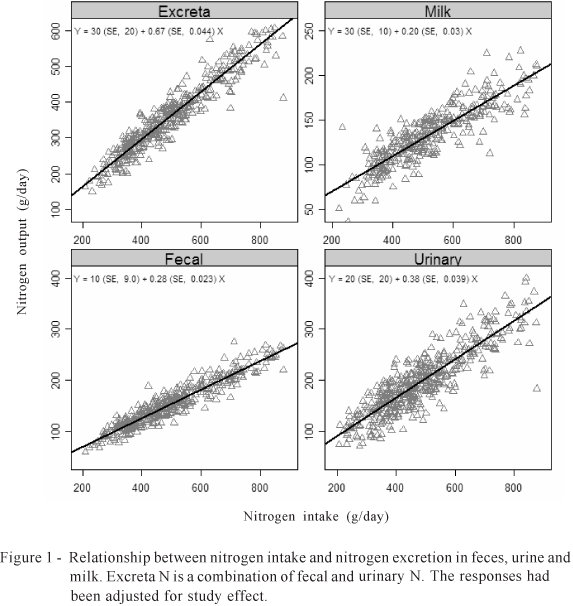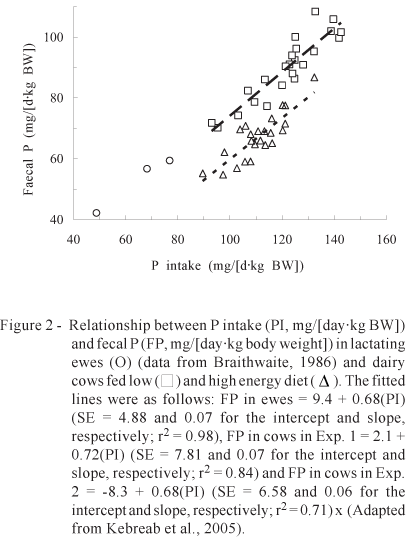The growing global demand for meat and particularly in countries such as Brazil is expected to increase intensive animal production. Consequently the main pollutants of interest are nitrogen (N), phosphorus (P) and greenhouse gases (GHG). Nitrogen can be a problem through nitrate leaching to water bodies, ammonia, and nitrous oxide emissions to air. Phosphorus loading in soil from manure application can be the main issue due to the tendency of P to accumulate in soil and leach to groundwater and rivers. The sources of agricultural GHG emissions include methane from enteric fermentation, manure storage and spreading, and nitrous oxide mainly from application of manure on land. Dietary manipulation has proven to be an effective tool to reduce nutrient/mineral pollution and GHG emissions. Several studies have shown that decreasing crude protein in the diet could reduce N excretion and ammonia volatilization substantially without compromising productivity. Similarly, reducing P intake in dairy cattle has been shown to reduce P excretion by up to 10%. Changing the type of N and P consumed and energy level of diet has also been reported to affect the amount and type of N and P excreted. Dietary manipulation also has an impact on the amount of GHG emissions, particularly, from enteric fermentation. Feeding cattle with a high starch and low fiber diet, for example, reduces acetate production in the rumen, and leads to lower methane production. Emissions from stored manure from high fiber fed animals tend to be higher. Evidence is also available that diet affects emissions from manure applied soil. As level of production is increased to meet global demand for ruminant meat and milk products, dietary manipulation will be useful in addressing environmental concerns.
methane; nitrogen; phosphorus; pollution; ruminants





